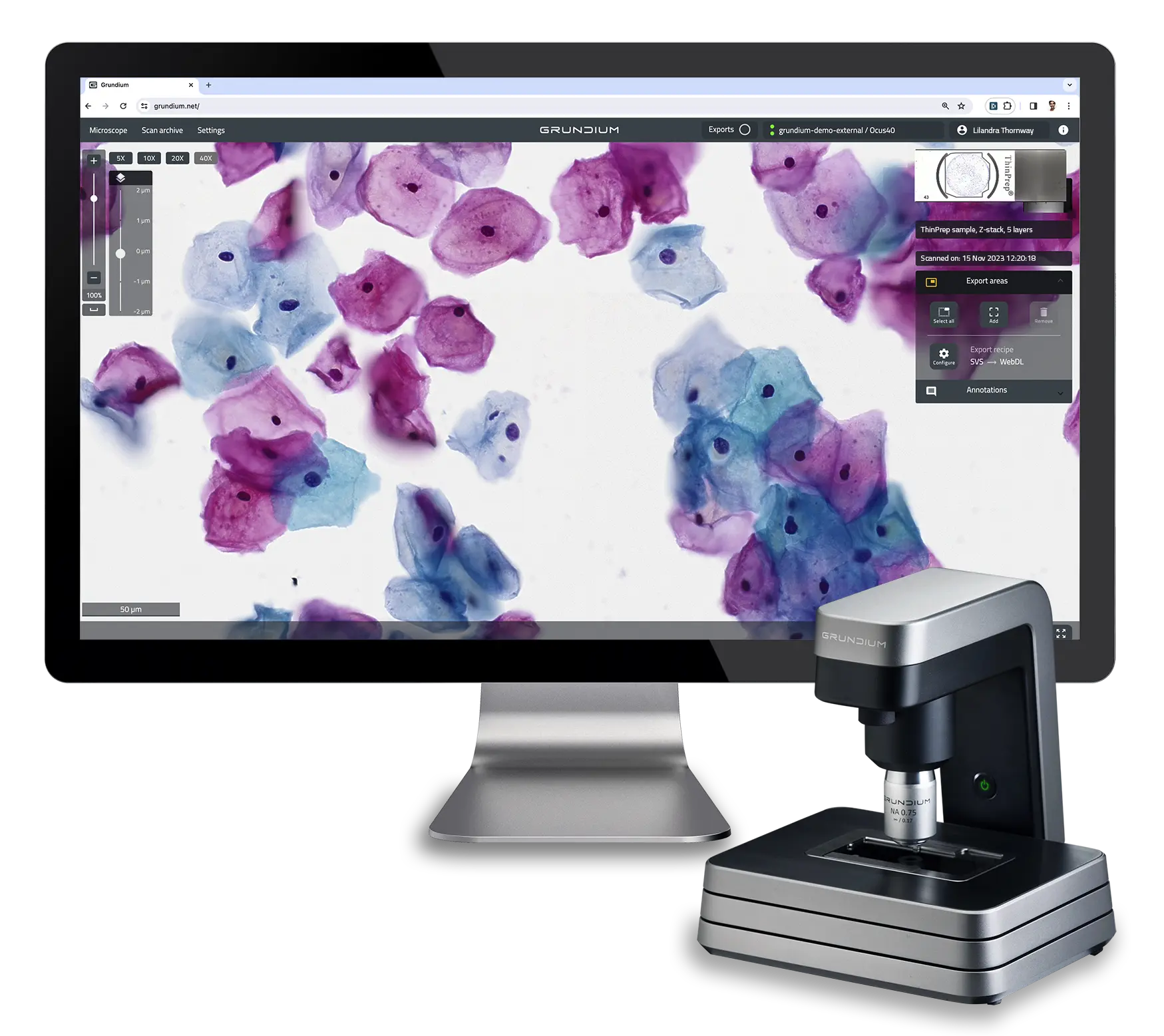
Digital slide scanners are becoming essential in modern pathology. Why should pathologists consider upgrading to a digital microscope scanner?





Pathology practices often incur high shipping costs when sending physical slides for external consultations or second opinions. With digital microscope scanners, these costs are drastically reduced. Digital slides can be shared instantly and securely over the internet, eliminating the need for expensive and time-consuming shipping processes. Additionally, the ability to share digital slides instantly leads to faster consults, which in turn results in quicker patient care and improved outcomes.
In traditional pathology workflows, pathologists and lab technicians may need to travel to different locations to access specific slides or collaborate with colleagues. Digital microscope scanners remove this need. Pathologists can access and review digital slides from anywhere, facilitating remote consultations and collaborations, which leads to significant savings in travel costs and time, allowing for more efficient use of resources.
While the upfront cost of digital microscope scanners is higher than traditional microscopes, the return on investment (ROI) is substantial. Over time, the reduction in maintenance, storage, shipping, and travel costs, combined with increased case processing speed, results in significant financial savings. Furthermore, digital scanners future-proof pathology practices by aligning with the ongoing advancements in medical technology, ensuring that your practice remains competitive and innovative.
Digital microscope scanners offer superior data management capabilities. Digital slides are easily stored, organized, and retrieved, eliminating the challenges and costs associated with physical slide storage. Additionally, digital storage solutions provide robust security measures, ensuring that valuable data is protected from loss or damage. This reliability reduces the risk of costly data breaches or lost slides, further enhancing the financial benefits of digital scanners.
Digital microscope scanners simplify compliance with regulatory requirements by providing robust tracking and reporting features. Digital records can be easily audited, and automated systems ensure that all necessary documentation is accurately maintained. This reduces the administrative burden on pathologists and ensures that practices remain compliant with industry standards.
Digital microscope scanners offer greater flexibility and scalability compared to traditional microscopes. They can be easily integrated into existing IT infrastructures and scaled up as the practice grows. This adaptability ensures that pathology practices can continue to evolve and expand without being constrained by outdated technology.


